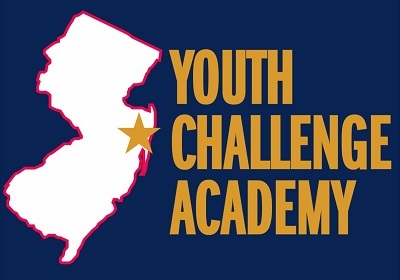Trust The Process
Before Arrival
The NJ Youth ChalleNGe Academy is exactly that – a challenge. It is not an easy path, but it can be made easier if you enter with a positive attitude and a strong will to learn. If you are not accustomed to physical training, it is recommended that you begin some sort of physical regime before you come to the Academy to help ease your transition.
Acclimation Phase
The Acclimation Phase begins the 22-week program at our Academy in Sea Girt, NJ. The two-week Acclimation Phase orients cadet candidates to the program environment by allowing them to adjust to the physical, mental, and social discipline required to successfully complete the ChalleNGe program. The focus is on teamwork, close quarter drill, code of conduct, leadership and followership, and physical fitness training. Candidates relinquish personal items, receive haircuts, and exchange their clothes for uniforms.
NJYCA has no tolerance for disrespect, bullying, fighting, lying, cheating, or stealing.
During the Acclimation Phase, staff members continually assess each cadet candidate’s potential for success in the Residential Phase. Cadet candidates learn to replace negative behaviors, attitudes, and skills and are introduced to daily experiences of healthy routines and a structured and disciplined environment. At the end of the Acclimation Phase motivated cadet candidates are selected to enroll in ChalleNGe and become cadets.
Residential Phase
All of the candidates who graduate from the Acclimation Phase will advance to the Residential Phase of the Academy. It is at this time that candidates become cadets. Historically, the majority of the selected cadets will go on to successfully complete the Residential Phase. During the next five-months, cadets experience a structured and disciplined schedule that focuses on developing their social, emotional, academic, and basic life skills. This is accomplished through the implementation of the Eight Core Components, the foundation of the ChalleNGe program intervention model.
Cadets complete the Residential Phase with the skills and values necessary for their successful transition and integration into adult society. Cadets are matched with a caring, adult, volunteer mentor who works to support and encourage the cadet’s development of an action plan for the next phase of the program and help them prepare to reenter community life. Mentors continue their responsibilities during the 12-month Post-Residential Phase.
Cadets will live as a team and as such will be held accountable as a team.
A Typical ChalleNGe Day
- 5:00 AM Wake up and make your bunk
- 5:40 AM Complete hygiene, dress, and details
- 5:45 AM Physical training until 7:00 AM
- 7:05 AM Move to chow (breakfast)
- 8:35 AM Class begins
- 10:06 AM Company Formation
- 10:21 AM Class resumes
- 12:00 PM Move to chow (lunch)
- 1:15 PM Class resumes
- 2:46 PM Company Formation
- 3:01 PM Class resumes
- 3:45 PM Classes end
- 4:45 PM Move to chow (dinner)
- 6:00 PM Homework/Study Time
- 7:00 PM Uniform Preparation Time
- 7:30 PM Personal Hygiene
- 9:00 PM Lights out
Post-Residential Phase
The 12-month Post-Residential Phase begins when graduates return to their communities, pursue higher education, find a job, join the military, or volunteer at least 30 hours a week. The goal of this Phase is for graduates to sustain and build on the gains made during the Residential Phase. In addition, they must continue to develop and implement their life plans.
The mentors play a critical role in ensuring the graduate’s continued success. They help graduates transition from the structured environment of the Residential Phase to self-management. The mentors also support and guide the graduates through implementation of their life plans.


